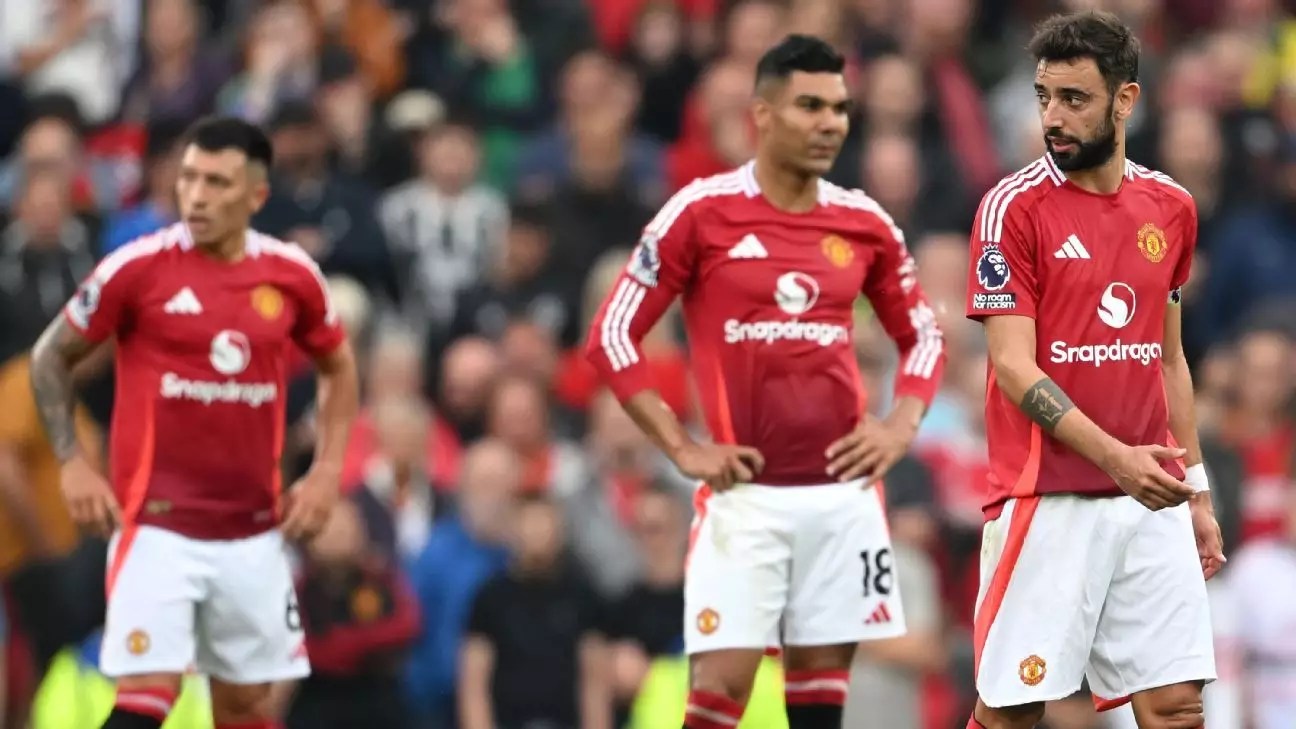Manchester United is facing an unprecedented crisis at the dawn of the new Premier League season, finding themselves languishing in 14th place with only two wins from their first seven encounters. As the international break looms, the weight of disappointment increasingly revolves around manager Erik ten Hag, whose position is hanging by a thread amid growing speculation and scrutiny.
The recent involvement of Sir Jim Ratcliffe and his Ineos Group as minority shareholders has ushered in an era of heightened expectations at Manchester United. However, the team has yet to show improvement on the pitch, casting doubt on the effectiveness of these new powerbrokers. With key figures like Dave Brailsford, Omar Berrada, Dan Ashworth, and Jason Wilcox now in charge, it becomes imperative to question their collective vision and decision-making process. Critically, the upcoming board meeting could determine Ten Hag’s fate, yet the disjointed management structure raises concerns about their commitment to making bold changes.
Ten Hag’s coaching record has come under fire, particularly as he now oversees two of the club’s worse starts in Premier League history within consecutive seasons. However, displacing blame solely on him overlooks the broader systemic issues and mismanagement that have plagued the club for years, including prior to Ratcliffe’s substantial financial investments.
Ten Hag entered Manchester United with a strong reputation forged during his time at Ajax. Nevertheless, the initial promise has quickly eroded under the weight of poor results and ill-advised player acquisitions. His controversial signings, like the £85 million Antony from Ajax and the £55 million Mason Mount from Chelsea, have yielded disappointing returns and hindered the squad’s overall performance.
The decision to pursue Rasmus Hojlund as the solution to United’s attacking woes seems particularly questionable. Despite being touted as a long-term investment, Hojlund’s mediocre output—only 17 goals in 48 appearances—contrasts starkly with performances from other potential targets like Harry Kane and Ollie Watkins, who consistently deliver for their teams. United’s miscalculation in the transfer market reflects a troubling lack of foresight that has exacerbated their ongoing struggles.
Equally concerning is Ten Hag’s apparent reluctance to adapt his tactics or manage player relationships effectively. For instance, his handling of Marcus Rashford has been indicative of a broader failure to cultivate player potential; despite some promising sparks, Rashford’s form has dwindled, raising questions about Ten Hag’s capacity as a motivator and tactician.
Furthermore, tactical inconsistencies have haunted the team, evidenced by their alarming defensive record. Continual lapses have led to a staggering number of games in which they’ve conceded two—or more—goals, highlighting an urgent need for a tactical overhaul. However, Ten Hag’s adherence to a rigid strategy raises concerns about his adaptability and insight into the current state of the squad.
Compounding the tactical shortcomings is the team’s ongoing struggle with injuries. With critical players like Luke Shaw and Tyrell Malacia ruled out for extended periods, United have struggled to find stability in defense. This lack of depth hampers Ten Hag’s plans, forcing players like Diogo Dalot to occupy unfamiliar roles. The team seems increasingly unbalanced, as a weakened backline exposes the inadequacies of attacking players like Rashford.
Moreover, the decision to delay addressing these issues—specifically with the signing of Manuel Ugarte—further illustrates United’s vulnerability and naivety in the transfer market. A proactive approach could have provided much-needed reinforcements, potentially averting some of the challenges they currently face.
Manchester United fans are acutely aware of the club’s storied history and tradition of resilience, which includes standing by managers during rough patches. The case of Sir Alex Ferguson, who faced tremendous scrutiny in his early years, casts a long shadow over the current predicament. However, casting Ten Hag in such a light invites a profound dilemma: is hoping for a Ferguson-like turnaround simply a mask for inaction?
The reality is that the club cannot afford to merely cling to the past; the present demands immediate accountability and calculated risk-taking. Relying solely on nostalgia could siphon away precious time, prolonging a cycle of disappointment that has left this once-mighty club drifting without direction.
While the challenges faced by Manchester United may seem insurmountable, the path forward cannot be paved with complacency or blind hope. It demands a bold shift in strategy, an honest assessment of leadership, and a commitment to fostering a culture of accountability. Only then can this iconic institution reclaim its status among England’s elite.


Leave a Reply